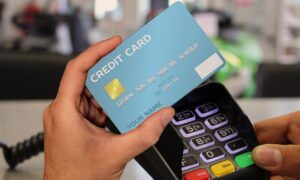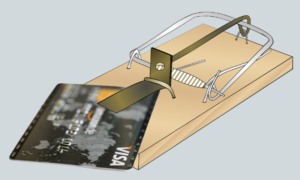In today’s world, having a credit card is essential. When used properly, a credit card is a safe and flexible payment method that can help spread the expense of large purchases.
However, credit cards may be expensive and lead to a debt spiral, especially if you run up a bill you can’t pay back or form a habit of making less than minimum payments.
But worry not, as understanding how credit card repayments work can help you manage your credit account better and ensure a good credit history.
So, How Does a Credit Card Work?
A credit card is linked to a financial institution’s credit account. When you use a credit card, whether to buy products or services or even acquire a cash advance, you borrow money from the credit card company.
It is worth noting that different credit cards charge different fees, monthly minimum repayment amounts, and interest rates, meaning it can be quite challenging to pick the best option. Luckily, you can compare credit cards with Iselect or with dedicated credit card comparison website CreditCardCompare.com.au to find the one that best fits your lifestyle.
What is a Credit Card Balance?
When you purchase an item with a credit card, the amount you pay is added to the total amount you owe, which is known as your credit card balance. However, your balance is more than just the total of your purchases.
It also includes any interest owed on your balance, as well as any fees and penalties your card issuer has charged you. These may include late payment penalties, annual fees, cash advance fees, foreign transaction fees, and various other fees.
Credit Card Repayments
Once you have a credit card, you will need to pay for it just like any other debt. The credit card company will tell you how much you owe, the minimum payment to make, and when to make monthly repayments.
You’ll keep your credit in good standing with your creditor if you make at least the minimum payment on time. The remaining balance is then carried over to the following month’s balance, increasing interest. Therefore, it’s best to pay more than the minimum each month and, ideally, pay off your balance in full.
Your credit score is often not affected if you only make the minimum payment and roll your amount over to the next month. However, this might be an issue if your balance is too big compared to your total credit limit.
Potential lenders consider your credit usage ratio when determining how risky it is to lend money to you. The reason behind that is simple.
Someone who often maxes out their credit card will appear to be less financially responsible than an individual who maintains a substantial amount of their available credit in reserve just in case.
How Credit Card Interest Rates Work
An annual percentage rate (APR) is used to determine the interest that your credit card company charges you. The APR is divided by 12 and applied to your outstanding debt each month because it is an annualized percentage.
For instance, a credit card with a 20 percent APR will charge you roughly 1.67 percent interest on your due balance every month.
However, some credit cards contain more than one APR, one for purchases and another for cash advances. All these are set out in the conditions of your credit card, which you should get when starting your account.
Wrapping up
A credit card is an excellent alternative to debit or cash. However, you must keep your credit card repayments up-to-date to save you money and enhance your credit score.



































